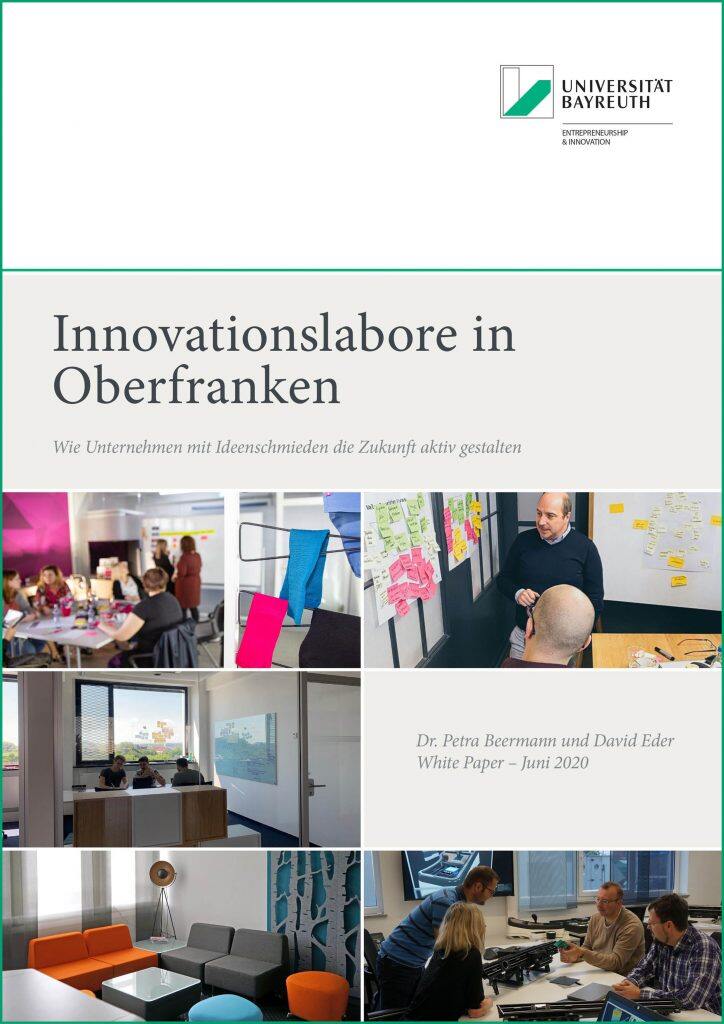Innovative ability and activity are of central importance for companies of all sectors, regardless of size, in order to survive on the market in the long term. Upper Franconian companies have acted on this in recent years by, among other things, establishing a strategic innovation management system, and setting up so-called innovation laboratories. The University of Bayreuth staff unit Entrepreneurship and Innovation has now published a white paper which not only gives examples of company innovation laboratories in Upper Franconia, but also initiates inter-company cooperation or cooperation with other partners in the regional innovation landscape, and highlights the support opportunities provided by the University of Bayreuth.


In many industries, the continuous development of a product is no longer sufficient to remain successful looking forward. Completely new directions, ideas, and structures must be found. But this particular challenge is often difficult to implement in the midst of day-to-day business. “In an operational innovation laboratory, the obligations of daily business are suspended. Innovation labs create a safe space and a collaborative working environment to enable thinking outside of the box,” explains Dr. Petra Beermann, director of the Entrepreneurship and Innovation staff unit, who wrote the White Paper together with her colleague David Eder. Freedom from hierarchy, a culture of interdisciplinarity, multidimensional, flexible thinking, and learning from mistakes characterize these innovation labs. “In this way, they become both the nuclei and powerhouses of future-oriented innovations,” says Beermann, “it is one thing that SMEs in Upper Franconia need especially.
Five Upper Franconian innovation laboratories are presented in the White Paper as examples. The focus is on the respective challenges, the motivation for setting up these units, and the success factors behind these units. In addition, interplay within the innovation environment and options for action by companies that do not have their own innovation lab are shown using the example of the University of Bayreuth. “We deliberately wish to initiate the exchange of experience between the existing and the emerging company innovation labs in Upper Franconia. In addition, we aim to support companies not in a position to set up their own innovation lab with tailor-made offers,” explains Eder. After all, many SMEs will not have the necessary structures or resources to establish their own innovation laboratory in the medium and long term. For these companies, cooperation with colleges, universities, or start-up and innovation centres is a good option. For example, they will be able to rent rooms in the planned Regional Start-up and Innovation Centre (RIZ) for so-called innovation sabbaticals (“Innovationsauszeiten”), and develop their innovation projects in cooperation with partners in the innovation network centred on the University of Bayreuth. The University of Bayreuth is continuously expanding its services in this field. The White Paper is intended as an impulse for further discussion and projects.
It is available for download at https://doi.org/10.15495/EPub_UBT_00004893.







































